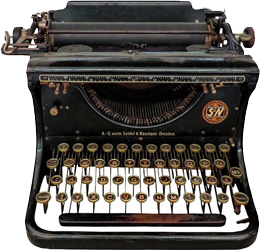March 29 – It occurred to me this morning that I should pick up the pace on these Left Coast Crime posts, or I will still be writing when next year’s conference in San Diego begins. I’ll see what I can do. This is the report on Friday’s first panel, Short Fiction & Novellas. In 2018, I spent a good deal of time writing quite a few short stories. It was something new for me, so this panel seemed like a good one to begin the day. The panelists were Kate Thornton (moderator), M.H. Calloway, Miriam Clavir, Merrilee Robson, and D.J. Wiseman. With the MWA Convention and the presentation of this year’s Edgar winners coming up soon, Kate asked for a moment of silence for Edgar Allan Poe. Very nice. As usual, any mistakes are due to either faulty notetaking or memory on my part.
Kate provided the following as general guidelines for story length. One thing I noticed as I listed these…there are gaps, which are almost certainly my fault. There should be a number of online resources to clear up any confusion.
- Drabble – 100 words exactly
- Flash – up to 1,000 words
- Short short – under 2,000 words
- Short – 5,000-7,500 words (broader in UK)
- Novelettes – 7,500-15,000 words
- Novellas – 15,000-30,000 words
- General fiction novels – 30,000+ words
- Crime fiction novels – 75,000-90,000 words
Kate
- Short stories and novellas should be concise and pack a punch, the reader needs to get the point right through the heart
- Take a look at the Short Mystery Fiction Society website
- Legalities for short stories – pay attention and be careful
- First North American serial rights – publisher has right to publish before anyone else
- First English serial rights
- First electronic rights – what are being sold most these days, don’t put your work on your website first before a publisher publishes
- Don’t sell all rights and check reprint writes
- Try writing science fiction (cross-genre with mystery)
- For crime novellas, placing them is a bit more difficult
- Alfred Hitchcock and Ellery Queen will publish novellas
- Think about putting two novellas into a single publication
- Follow the submission guidelines
- Buys anthologies and collections, something fabulous about holding a book, the only thing better than holding a book is holding a book with your name on it
M.H.
- Are you a plotter or a pantser, she is a pantser
- Write the story as long as it takes – she writes long, then edits down
- Walter Mosley – every word should sing
- Several Canadian publications offer publication opportunities
- Several Canadian publications offer publication opportunities, mentioned one in particular at coffinhop.com
Miriam
- Often begins with an image (character, setting)
- Make every word count
- Literary short stories are getting shorter and shorter now
- Count words aesthetically (make sure they pack a punch)
- The Writers Union of Canada provides extensive advice online, although there is a fairly steep membership price
- Always read the magazine or journal first to see what they publish
- Know what they publish
D.J.
- More than a scene or character, it may be an image to begin the story
- Writes down ideas, sometimes no more than a couple of words (ex: double aspect)
- Cuts down his novel writing as he does his short fiction (applies to all fiction)
- Explores an issue for the author and, hopefully, the reader
- Quite often a story that she needs to write
- Limited time frame, smaller number of characters, not too many plot twists
Merrilee
- For marketing, looks at publications that publish short stories, numbers maybe increasing a bit now
- Watch submission guidelines
- Orca Books – publishes novellas (in British Columbia)
- Peoples Friend – publishes novellas (in Scotland)
David
- Only attempted short stories for publication in the last four or five years
- Doesn’t actively pursue looking at markets until he completes a short story
Robert Lopresti, a short story guru (per Kate) who was in the audience, was asked about the difference between publishing in Alfred Hitchcock Mystery Magazine and Ellery Queen Mystery Magazine. Bob replied that AHMM published his work; EQMM did not (laughter here). He also said EQMM is more interested in things that reflect on the history of the field, while AHMM is more willing to publish a bit of the supernatural. His final point: AHMM takes forever to respond, while EQMM usually responds within eight weeks.
